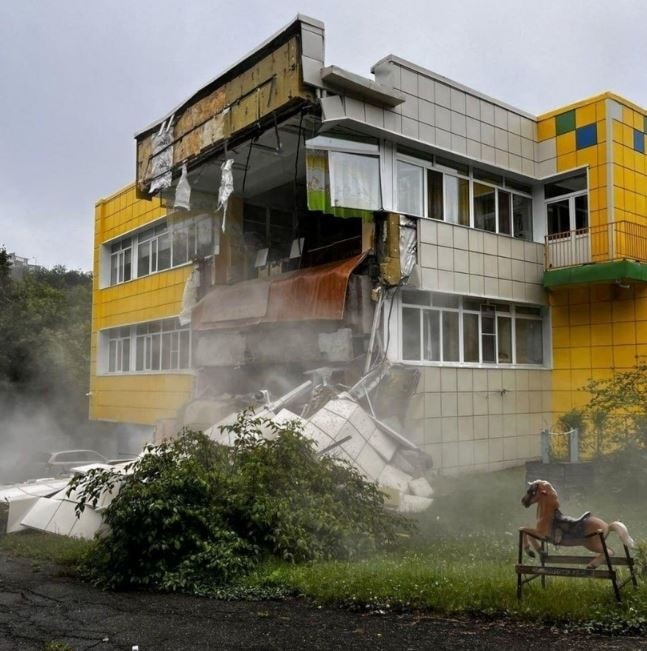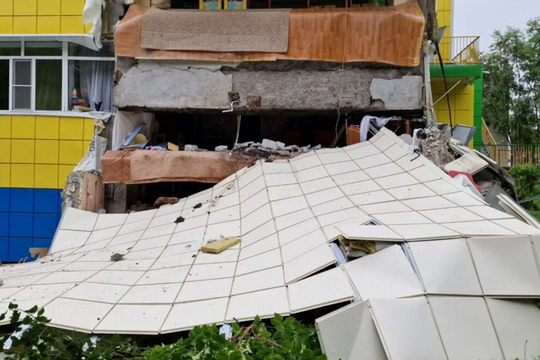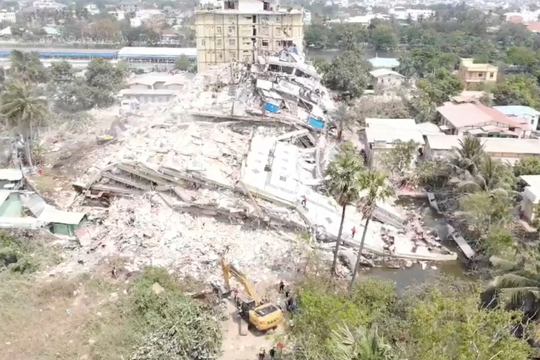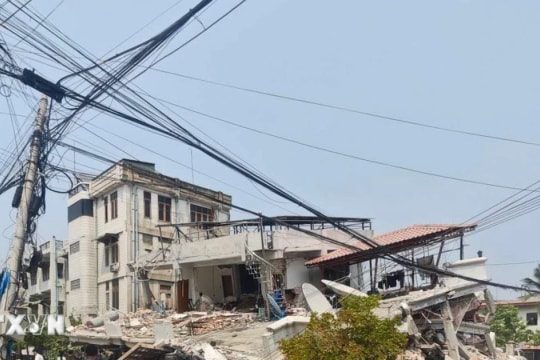Kamchatka earthquake triggers volcano to spew ash 6 km high
The director of the Institute of Volcanology and Seismology of the Far Eastern branch of the Russian Academy of Sciences noted that seismic activity often affects volcanoes on the Kamchatka Peninsula.

According to TASS on July 31, a strong underground earthquake on July 30 in Kamchatka caused ash to spray up to 6 km high at the Klyuchevskoy volcano.
"At the Klyuchevskoy volcano, in response to a strong earthquake of magnitude 8.8 on the Richter scale, people recorded a stream of ash erupting to an altitude of 6 km above the crater," said Alexey Ozerov, Director of the Institute of Volcanology and Seismology of the Far Eastern branch of the Russian Academy of Sciences.
According to Mr. Ozerov, previously the eruption was weak, although volcanic ash flew up to a height of 200-300m and ejected a small amount of ash. But here, the amount of ash immediately erupted up to 6 km.
The scientist noted that seismic activity often affects Kamchatka volcanoes. Earlier, on July 20, after an earthquake on the Avachinsky volcano, gas emissions were recorded at an altitude of 200-300 meters, so tourists are advised not to climb the mountain.
According to Ilya Bolshakov, a senior researcher at the Department of Geology, Lomonosov Moscow State University, experts are almost unanimous in their opinion that, with a high probability, this earthquake is the final conditional stage in the development of seismic events that have been taking place in this area for over a year.
The expert community believes that significant and distinct aftershocks will occur over a long period of time, possibly weeks.
He noted that, according to experts, in particular, employees of the Kamchatka branch of the Geophysical Department of the Russian Academy of Sciences, the intensity of aftershocks could reach 7.5 on the Richter scale.
"This aftershock is weaker than the main shock, but it is still quite strong, easily felt by humans and has the potential to cause a weak tsunami. However, we can breathe a sigh of relief; it is not expected that there will be aftershocks stronger than the ones that have occurred," Mr. Bolshakov added.
A powerful earthquake struck off the coast of Kamchatka on the morning of July 30. It was the strongest earthquake since 1952. According to authorities, the earthquake had a magnitude of 8.8. The Kamchatka branch of the United Geophysical Service of the Russian Academy of Sciences reported that the earthquake had a magnitude of 8.7. The highest level of alert has been declared in Kamchatka. A state of emergency has been declared in the North Kurilsky District of the Sakhalin Region due to the earthquake and tsunami.
The earthquake also triggered a tsunami in the Pacific Ocean, and Japanese, US and Philippine authorities issued tsunami warnings.






